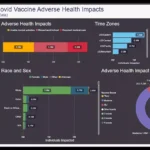The debate surrounding fats and their nutritional impact is far from new. For decades, scientists have been studying the effects of varied types of fats on our health. In this regard, a significant distinction is often made between ‘trans fats' and ‘normal fats'. Although commonly referred to as simply ‘fats’, understanding the difference between these two can profoundly impact our health and dietary choices.
To begin with, let's understand what fat is. Fat is a nutrient essential for numerous bodily functions such as energy production, absorption of vitamins, and hormone regulation. It's also necessary for the proper functioning of our brain and nervous system. However, not all fats are created equal; trans fats and normal fats differ remarkably in their chemical structure and consequently, their effects on our health.
Essentially, normal fats typically refer to unsaturated and saturated fats. Unsaturated fats, which include monounsaturated and polyunsaturated fats, are generally considered beneficial for heart health when used in moderation. These types of fat can be found in foods such as olive oil, avocados, nuts, fatty fish like salmon and mackerel. Saturated fats are found predominantly in animal products like meat and dairy as well as coconut oil. These have been traditionally viewed as less healthy due to their potential to raise low-density lipoprotein (LDL), or “bad” cholesterol levels.
On the other hand, trans fats go through an industrial process called hydrogenation which adds hydrogen to liquid vegetable oils to make them more solid. This process gives them a longer shelf life making them attractive for use in packaged foods like snacks or margarine.
However, it's important to note that not all trans fat is artificial – there's also naturally occurring trans fat present in products from ruminant animals such as cows or sheep. Still, most trans fat we consume is artificially created, and this is where the concern for health arises.
Research shows that consumption of trans fats increases LDL cholesterol levels while decreasing levels of high-density lipoprotein (HDL), or “good” cholesterol. This dual effect poses a significant risk for cardiovascular health. Studies have also linked trans fats to increased inflammation and higher risk of type 2 diabetes.
It's worth noting that while there have been several changes in perspective regarding saturated fats, their impact on heart disease continues to be an area of ongoing research. Some studies suggest that these fats may not be as harmful as once believed, particularly in comparison to trans fats. However, replacing some amount of saturated fat with unsaturated fat in one's diet is still generally advised as a healthier choice.
Today, awareness about the detriments of trans fat is growing worldwide. Many countries have imposed restrictions or bans on foods containing artificially created trans fats. Consumers are also becoming more knowledgeable about reading food labels to identify and avoid products with partially hydrogenated oils – the major source of artificial trans fats.
Although both trans fats and normal fats have a place in our diet, they differ significantly in their impact on our health. Normal or natural fats can be part of a balanced diet when consumed wisely. Trans fats, especially those artificially created through hydrogenation processes, should ideally be avoided due to their adverse health effects.
Understanding the types of fat and their differences can help you make better dietary choices leading towards a healthier life. Always remember that moderation is key; no matter what type of nutrient it is, excessive consumption could lead to detrimental health outcomes.

Lifelong bacon junkie. Lifelong internet fanatic. Hipster-friendly travel aficionado. Twitter lover. Avid food buff. Incurable travel trailblazer.













